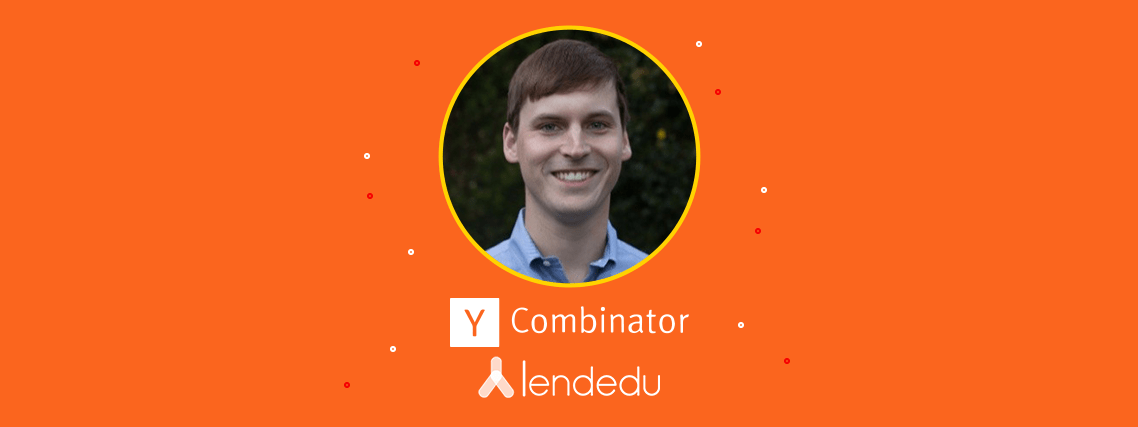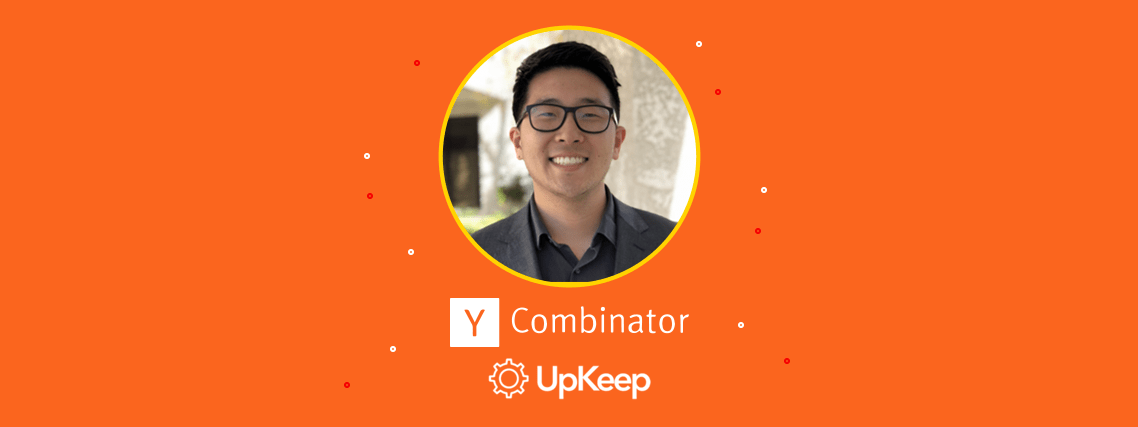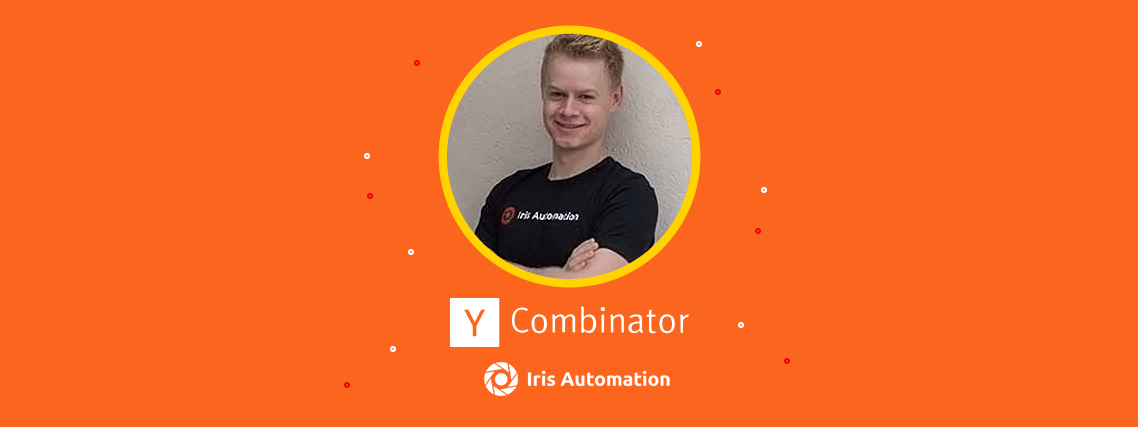Pedro Goes of InEvent shares his Y Combinator Journey
- 1.From Wolf of Wall Street to a "Made Man" in Silicon Valley
- 2.How LendEDU Raised the Most Valuable Seed Round Imaginable with Y Combinator
- 3.Kyle Killion's story of getting Suiteness into Y Combinator along with tips on how to apply
- 4.Rotem Yakir shares Guggy’s story of evolving from "just another Israeli Startup" to a YC startup
- 5.The True Story of How Orion Willow Got Lendsnap Accepted Into Y Combinator
- 6.Nicky Goulimis shares Nova Credit's Path to Y Combinator Acceptance and Beyond
- 7.Katherine Nammacher Chronicles RideAlong’s Journey Into Y Combinator
- 8.The Story of How a Sofa Startup Got Into Y Combinator with Just a Pitch Deck
- 9.The story of how two college friends joined forces to disrupt an industry with Iris Automation
- 10.How 4 Swedes got their SaaS accepted into Y Combinator while still at $0 MRR
- 11.The story of when 8 x Co-Founders flew from Denmark to San Francisco for Y Combinator
- 12.Ryan Chan the founder of UpKeep shares his Y Combinator Journey
- 13.Pedro Goes of InEvent shares his Y Combinator Journey
- 14.Itay Forer of Cleanly shares his Y Combinator Journey
- 15.How to get into Y Combinator according to the founders that did get in
- 16.What It Was Like Doing Y Combinator a Second Time
Pedro Goes is the co-founder at @ InEvent, software that helps you run virtual and hybrid events at scale. Here’s his journey through Y Combinator.
Can you tell us a bit about what InEvent is?
Today InEvent is a virtual event platform. But our vision is to the premier hybrid event solution. Naturally, there’s a huge uptick in virtual event software due to COVID. Our vision is for InEvent to be a solution that does both really well. Virtual, and in person. That way you won’t have to purchase two systems. Our vision is to create the best omnichannel integration of events.
When you applied, was the virtual element part of the product?
It was not. We were focused mostly on integrations at the time. That was the main part of the pitch since before InEvent we ran an agency that specialized in creating custom integrations for our clients. We know how to do integrations really well, and that was our core feature at the time.
Why did you decide to apply to Ycombinator?
To put things in context, before starting InEvent we had an agency that was doing $1.3mn per year in revenue. While that was definitely awesome, we were honest with ourselves and knew deep down that this could never be a business that could scale to $5mn per year.
We decided to close down that agency and pivot into the software space taking all of our experience creating integrations for our clients with us. Ultimately it was the best decision. But at the time, it was difficult. Closing down a business making 7 figures to embark on something brand new is not an easy call to make.
Starting a software business in the events segment as a team of Brazilians targeting USA clients isn’t an easy undertaking. Breaking into this segment requires credibility. Customers need to trust that the technology will work, and that the team behind it is trustworthy.
By getting into Ycombinator we’d get that instant credibility.
Did you have traction before getting accepted?
We had been working on our agency for the past six years at the time of our application. The year before we applied to Y Combinator, we decided that we wanted to build a technology first business and only do that. We shut down this previous business and started building InEvent. At the time of our application, we were doing around $3,000 MRR.
How did you get those initial pre-Ycombinator customers?
Through a couple of channels. The first was a listing on the Salesforce app exchange. We wrote an integration, paid a few thousand dollars for the listing, and then the first customer reached out and we closed them. Then another one found us directly via Google Search. We also had some success with cold outreach. We reached out to a prospect list of event managers in Europe and got some signups that way as well.
How much time and effort did you put into the application?
We spent around 2 weeks on our application. The best insight that I got through the whole Y Combinator process was to focus on three things that you think are amazing about you or your business.
We were born outside the US and were able to create this big business making millions of dollars. So that was one thing that we wanted to highlight. The second thing was that we’re able to be able to sell to big corporations, you know, plane manufacturers like Boeing, and that was our second highlight. And the third thing that we did is that our business was more software-focused vs. the first agency-driven business we made.
So these are the three highlights that we wanted to stress. We were repeating the same themes throughout all of the questions. So that’s how we approach the application process.
We had an interview first on video before the actual in person interview. Our first video interview was with Kevin Hale and that went really well. He was a very straightforward guy and had very specific questions about our business. After that, they invite you to be in person. We reached out to other founders that we knew and they helped us with the mock interview.
Do you have any tips on how to nail the Ycombinator interview?
Try to be really calm. Don’t speak too fast. Also, make sure that if you have more than one co founder, there is one person that’s leading the conversation. Don’t have two or three people trying to overstep each other or speak over. We made this system so that if I was talking, and someone wanted to speak, they would tab each other’s shoulders. We coordinated this so that even with 4 partners in front of us they wouldn’t really be able to see it happening. We’d just tap each other subtly and that’d give the cue that, hey, I want to chime in.
Where were you when you got the acceptance phone call?
After the interview, we went to have lunch and then went home to the Airbnb that we got. Around 6 pm we started doing calculations. If they have 30 minutes to call each company that got accepted and there are 8 companies we thought that by 7 pm they’d be over since the interviews finished at 4 pm. So we just assumed that if we didn’t get the call by 7 pm, that meant they weren’t interested in us.
So we just figured, guys, it didn’t happen, we tried. We decided to just keep pushing onwards with the project anyway and wanted to continue working that night. So we went to Walmart to pick up something to eat.
While we’re at Walmart, the phone rings. And I think, ok, let’s answer this. I answered the phone and it’s Jared Friedman.
And he says, “Hello, guys. How are you? Are you guys free? We discussed your business, we really think you guys did something really amazing and we want to invest in you. But you have to let us know now if you’re in.”
We obviously said, “yes, we accept.”
And then hung up the phone and started screaming in the middle of Walmart and ultimately got kicked out of the store. So yea, that’s the story of when we got expelled out of Walmart but accepted into Ycombinator all at the same time.
How does the process of getting the money work?
Since we’re a non-US company at the time, we were migrating the company over and dealing with the papers with our lawyers and everything. So we had to create the Delaware company and everything. It took about two and a half months. So that was the most complicated process on our side. Ycombinator was advising on any questions that we had, and at the end of the process, when everything was done, we just signed a DocuSign.
And then one day later, we got $150,000 wired to our bank account.
It was pretty quick and straightforward.
What was the biggest benefit of joining Ycombinator besides just the money
I think the community. We get the best recommendations for any tech solution as there’s a large chance that some YC company created it. And that’s crazy. Because like, I can just reach out to their founder on BookFace and say, “Hey, I’m trying to use your services!” And then you get that personal connection with the founder and they always have special deals for Y Combinator founders. That for me is the most amazing part and that happens frequently.
Did it help you get customers?
I think they introduced us to like four or five prospective customers at the time through personal introductions. But I don’t think that’s the best asset. There are other ways to find customers, but I think the most valuable thing was access to expertise in the community. The investment was also really good because that opens the doors to any investor. Later it’s much easier to raise 2 million and then 10 million because someone already backed you up.
Did you do Demo Day?
Yeah, we did. Demo Day was nice. A lot of people on this stage and we raised money. We weren’t the most popular company at the time, because we still had the challenge of adapting to this American-only reality. As Brazilians, that was a big thing for us. Like we had to be a USA-centric company focused on developing our American customers. We had done so in the last 18 months, so now 70% of our customers are US-based companies.



